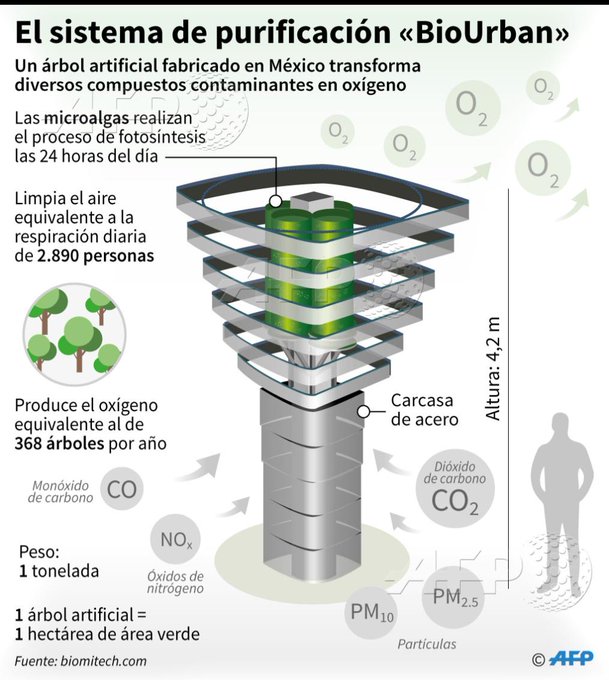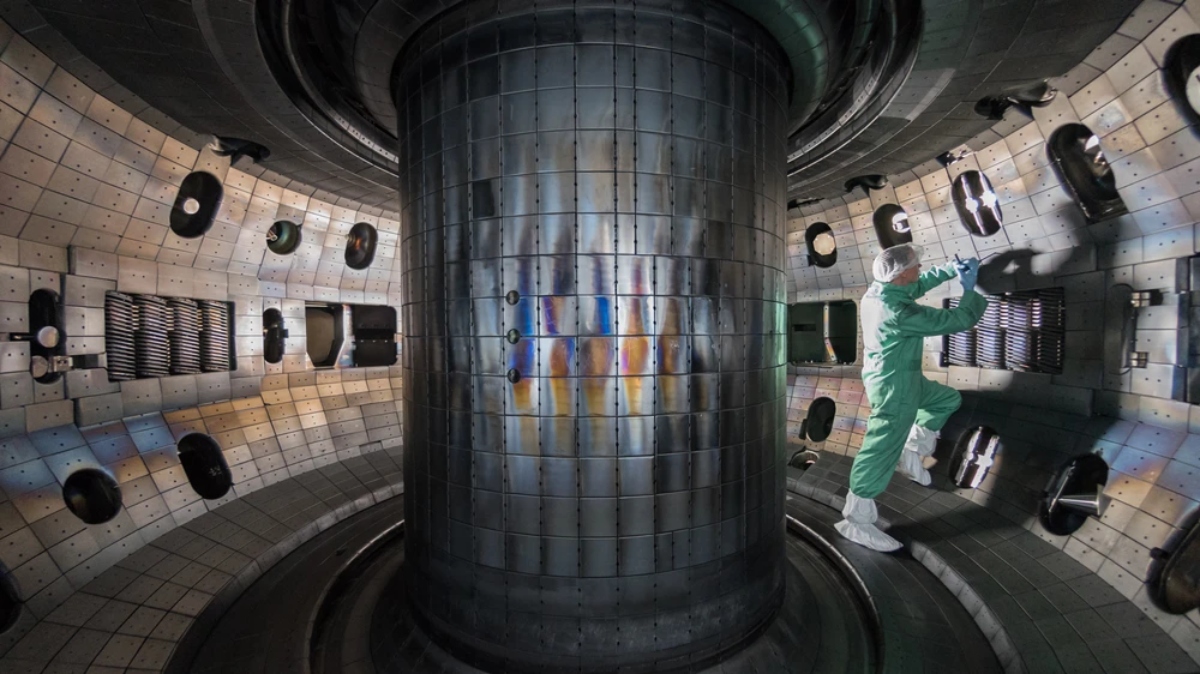Unfortunately, if there is one thing Mexico is an expert in, it is air pollution, as from time to time it is common for the capital city to come to a standstill due to high levels of pollution. However, a group of engineers is proposing a very novel solution: artificial trees.
And you say, why not plant natural trees? Well, I thought the same thing, but the reason is different, and here I am going to tell you everything that this new invention can do for the planet and to improve the quality of life of people.
Jaime Ferrer, co-founding partner of BiomiTech, explained to the AFP press agency:
“What this artificial tree system does, through technology. is to be able to inhale that contamination and then we use the biology to do the natural process like a tree does.”
Artificial trees a complement to real trees
These artificial trees consist of a metal structure approximately four meters high and almost three meters in diameter that captures pollution.
It performs a photosynthesis process 365 days a year, through the microalgae it contains. In this way, it is possible to return clean air.
And the reason why these devices are an excellent alternative is that only one of the artificial ones performs the work of 368 real trees. Therefore, its creators affirm that they do not seek to substitute the natural ones, but to complement them, thanks to the fact that due to its characteristics this system can be located in those areas where it is difficult to reforest.
Regarding the above, Ferrer added:
“They can be installed in places of high pedestrian, vehicular, cyclist, transport terminal traffic, where a hectare of trees cannot be planted.”
This project seeks to reduce the problem of air pollution in the future. According to the World Health Organization, around seven million people die each year in the world. And in the case of Mexico, it affects about 20 million of its inhabitants, who suffer the consequences of poor air quality.
They are not a definitive solution, but they will help a lot
Artificial trees will not end Mexico’s pollution, but they will alleviate the problem, according to Ferrer. Moreover, the price of each of these is around US$50,000 and the first ones will soon be installed in Monterrey and will be financed by civil society.
If all goes as expected, the idea is that in the future this system could be applied in those cities where air pollution levels are often a problem for their inhabitants.
If you liked this article, you can also read: A moss tire, the future of smart, sustainable and safe mobility?





